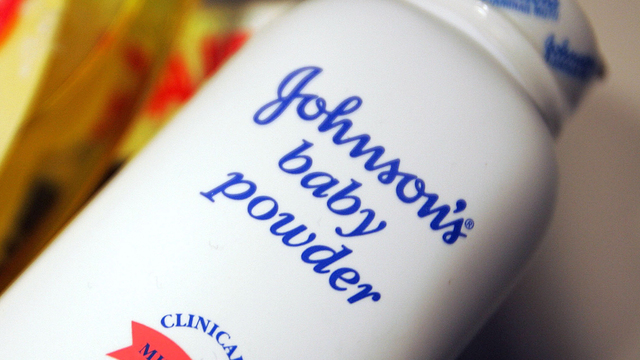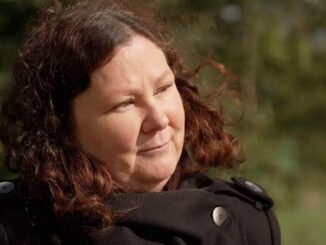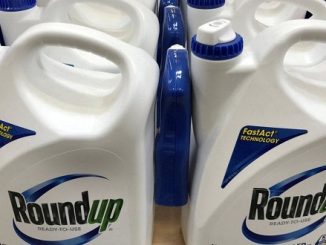
Johnson & Johnson has been ordered to pay $4.7bn (£3.6bn) in damages to 22 women who alleged that its talc products caused them to develop ovarian cancer.
A jury in the US state of Missouri initially awarded $550m in compensation and added $4.1bn in punitive damages.
The verdict comes as the pharmaceutical giant battles some 9,000 legal cases involving its signature baby powder.
J&J said it was “deeply disappointed” and plans to appeal.
In the six-week trial, the women and their families said they developed ovarian cancer after using baby powder and other talc products for decades.
Of the 22 women represented in this case, six have died from ovarian cancer.
Their lawyers alleged the company knew its talc was contaminated with asbestos since the 1970s but failed to warn consumers about the risks.
Talc is a mineral and can sometimes be found in the ground in close proximity to asbestos.
J&J denied that its products ever contained asbestos and insisted that they do not cause cancer.
The pharmaceutical giant added that several studies have shown its talc to be safe and said the verdict was a product of a “fundamentally unfair process”.
The US Food and Drug Administration (FDA) commissioned a study of a variety of talc samples, including J&J, from 2009 to 2010. It found no asbestos in any of them.
The prosecution lawyer told the Missouri court that the FDA and Johnson & Johnson had used flawed testing methods.
The verdict is the largest payout J&J has faced over the allegations.
Punitive damages are often reduced by the trial judge or on appeal, and J&J has succeeded in having several jury verdicts overturned, some of them on technical grounds.
A previous ruling in 2017 by a California jury awarded $417m (£323.4m) to a woman who said she developed ovarian cancer after using the firm’s products, including baby powder.
However, a judge later overturned that verdict and several other legal challenges by J&J are yet to be decided.
The majority of the 22 women were from outside the state of Missouri. The presentation of their combined cases at such a court is known as forum shopping. This will be one of the elements challenged by Johnson & Johnson at appeal.
Johnson & Johnson said: “Every verdict against Johnson & Johnson in this court that has gone through the appeals process has been reversed and the multiple errors present in this trial were worse than those in the prior trials which have been reversed.”
Analysis:
Philippa Roxby, BBC health reporter
Is talc safe?
There have been concerns for years that using talcum powder, particularly on the genitals, may increase the risk of ovarian cancer – but the evidence is not conclusive. The International Agency for Research on Cancer classifies talc used on the genitals as “possibly carcinogenic” because of the mixed evidence.
Why is there any debate?
The mineral talc in its natural form does contain asbestos and does cause cancer, however, asbestos-free talc has been used in baby powder and other cosmetics since the 1970s. But the studies on asbestos-free talc give contradictory results.
It has been linked to a cancer risk in some studies, but there are concerns that the research may be biased as they often rely on people remembering how much talc they used years ago. Other studies have argued there is no link at all and there is no link between talc in contraceptives such as diaphragms and condoms (which would be close to the ovaries) and cancer.
Also there does not seem to be a “dose-response” for talc, unlike carcinogens like tobacco for example, where the more you smoke, the greater the risk of lung cancer.
What should women do?
The charity Ovacome says the evidence for a link is weak but even if talc does increase the risk of ovarian cancer, studies suggest it would be only by around a third. It stresses this is a small increase in risk and, because ovarian cancer is a relatively rare disease, the increase in risk is small too.
Also, ovarian cancer risk is affected by many different factors – inherited and environmental ones – not just talc alone.
The charity adds: “So even if talc does increase the risk slightly, very few women who use talc will ever get ovarian cancer. Also, if someone has ovarian cancer and used talc, it seems unlikely that using talc was the reason they developed the cancer.”
Source: bbc.co.uk






Be the first to comment